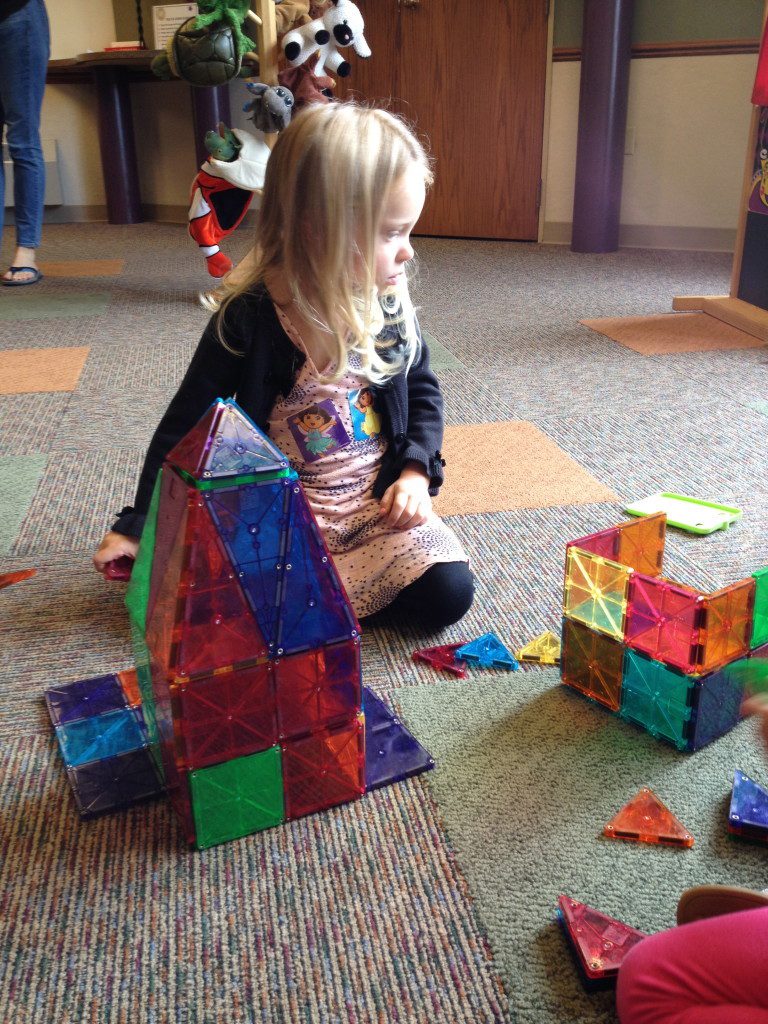About two months ago, the school I work for (I’m a high school Spanish teacher) had everyone watch a TED talk about something called “growth mindset”. To be completely honest, when we were first told that we would have to watch this and talk to our advisory students (kind of like a homeroom) about it, I felt frustrated that it was just another shiny object that we would chase for a while and then move on. The message of the talk and the idea fascinated me though. I realized that it wasn’t something we would have to do, but an idea about the way that we think about learning and intelligence. Growth mindset is the idea that intelligence can be developed and worked on. A fixed mindset is the idea that intelligence is fixed and cannot be changed.
When I was in school, I was someone who would say, “I’m just not good at math.” I did ok, but I had to try really hard to be successful in my math classes. It didn’t come easily to me. I hear my students tell me all the time, “I’m just not good at ______.” You name the class or skill set and I’ve heard it. These dangerous thoughts stem from something that started a long time ago and will also create great stress and potential problems in their future. These are the two points that I’d like to address. The first being the root cause and the second being the potential future issues.
As a parent, the first piece really hit me because the way we are raised affects our mindset. After watching the video, I started to think about how I speak to my own children. When they are struggling with something, how do I respond? Do I say, “It’s ok, why don’t you just try later when you aren’t frustrated?” or do I say, “Getting frustrated is ok because it’s a part of the learning process. If it’s not working out this way, let’s try something different!” When they accomplish something, do I say, “Wow, you built a great tower!” or do I say, “Wow, you worked really hard and even though it fell down a few times, you tried out different ways to build a great tower!”
I know it seems like I’m going over the top here, but hang in there with me. I have twins that are 4. I was very intentional about this for a week or two and the results were incredible! There was less frustration, they were more motivated to try hard when building or creating something, and they started using the same language towards me that I was using them. One of them said to me (I kid you not…), “Mommy, you worked really hard to make a good supper. Thank you.” I mean, come on!
These little things that we say in response to our children’s efforts will make a different in the long run, trust me! As a high school teacher, I see the pressures and stress that students face on a day-to-day basis. They want to do well in school, get good grades, participate in clubs and activities so that they can be competitive when applying for colleges and jobs in the future. That’s a lot to deal with! What I see sometimes, though, is that the students who feel that they “just aren’t good at ….” yet still feel that they need to do well are more apt to cheat or do whatever they can to get the grade. They focus on the end result and not the process it takes to get there. As a Spanish teacher, I see kids using online translators all the time to do the work. I never give them an assignment they aren’t capable of, but sometimes students think they aren’t good at Spanish so they do whatever they have to do to get the grade. The fixed mindset and all the pressure take away from the process of learning. Learning is no longer the goal, getting the grade is. How can we as parents and adults change this in our kids?
I will leave you with some resources, as I am definitely not an expert on this topic, but it’s something that has resonated with me and it’s something that I hope to develop in my own children. The idea and process of learning is not just something that affects us during our school years, but for the rest of our lives. How do you respond to learning? Do you hear yourself saying, “I’m just not good at ____.”? I want to encourage you to reconsider how you see yourself and your children! Take a look at these resources and give this new way of thinking and talking a try. It might be a game changer for you and your kids!
THIS 3 minute video is a must watch! Carol Dweck, a Stanford psychology professor, who is the founder and main researcher, is interviewed and covers the main points.
Another video by Carol Dweck that has more detail about growth mindset and incorporates her research. Another MUST watch!
“The Power of Belief” TED talk
Here is a great article by Carol Dweck, that gives some idea of what to say to foster growth mindset.














This information is really helpful for me! Thanks.
Thanks so much! I’m glad it resonated with you. 🙂